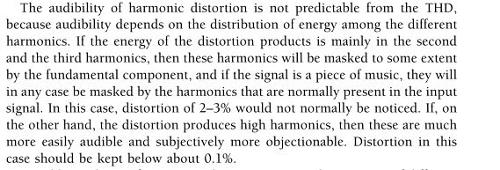@goodyfresh
You should share that info you sent me via PM about how when you changed some stuff, the measurements for your equipment improved!
Okay then:
So basically guys, what I told Music Alchemist is that I've been doing some experimentation with RightMark Audio Analyzer, an awesome free benchmarking tool for audio, which tests dymanic range, crosstalk, total harmonic distortion, and of course frequency-response accuracy (both standard and for swept-sine) for onboard computer audio or, if you set it up correctly, external DAC's and soundcards. My HP Envy 15t comes equipped with fairly nice speakers, as far as laptops go, they get pretty loud and even have a subwoofer. The internal sound chipset is one of the higher-end Realtek audio chips, although I haven't been abel to fiure out exactly which one. That being said, Hewlett Packard RUINED this thing's audio performance by including BEATS AUDIO software in it. Supposedly you can uncheck the beats-audio checkbox in the audio control panel to disable the Beats software EQ-ing, but it never completely goes away, in actuality. So I ran some tests with RightMark, and lo-and-behold, even with teh Beats Audio box unchecked, this thing gets as high as five percent THD in the lower bass range and high treble, and has a variation of +/- over FIFTEEN DECIBELS throughout the audible frequency range, and even within the 50hz to 10khz range it's getting +/- 8dB. Keep in mind this is the actual sound being output to the speakers or headphone-jack that is already this distorted, not even the sound of the speakers thesmelves.
HOWEVER, without the Microsoft and Beats EQ software, it turns out this thing is capable of doing far, far better. Using either WASAPI or ASIO4ALL bit-perfect audio output, the THD levels decrease to less than 0.05%, and the variation in frequency-response from 50hz to 20khz is less than .5dB! The response rolls-off below 50hz down to 20hz, hitting about -5dB or so. The dynamic range improves from about 70dB with the Beats/Microsoft EQ, to 80 dB with the bitperfect output, and the crosstalk numbers improve as well.
That being said, I of course get even BETTER performance when using my Fiio X3 2nd Generation as a USB DAC. . .THD less than .004%, dynamic range of about 90dB, and less than .2dB frquency-response variation throughout the entire range from 20hz to 20khz, with the vast majority of ANY variation at all being between 20hz and 50hz and 10khz and 20khz. Oh, and crosstalk of less than -80dB, which of course is totally inaudible, yay

By the way, folks who are interested should definitely check out RightMark Audio Analyzer and play around with it, it's fun to experiment with and is GREAT for free software







